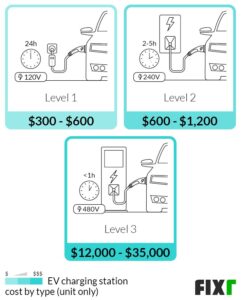Can a bad battery cause electrical problems in your vehicle? The answer is a resounding yes. A faulty battery can lead to a whole array of issues within your vehicle’s electrical system. From flickering lights to unresponsive power windows, a bad battery can wreak havoc on your daily commute. But fear not! In this article, we will explore the connection between a bad battery and electrical problems in your vehicle, as well as provide you with some practical solutions to rectify these issues. So, fasten your seatbelt and let’s dive right into the world of automotive electrical problems caused by a bad battery.
Can A Bad Battery Cause Electrical Problems In Your Vehicle
Introduction
The battery in your vehicle is responsible for providing the electrical power needed to start the engine and operate various electrical components. However, a bad battery can sometimes cause electrical problems in your vehicle. In this article, we will explore the connection between a bad battery and electrical issues in your vehicle. We will discuss common symptoms, potential causes, and the importance of regular battery maintenance.
Understanding Your Vehicle’s Electrical System
Before we dive into how a bad battery can cause electrical problems, let’s first understand the basics of your vehicle’s electrical system. Your vehicle relies on a complex network of electrical components to function properly. Here are some key components:
1. Battery: The battery stores electrical energy and supplies it to the starter motor, ignition system, and various accessories when the engine is off.
2. Alternator: The alternator charges the battery and provides electrical power to the vehicle while the engine is running. It also helps maintain the battery’s charge.
3. Starter Motor: The starter motor engages the engine’s flywheel to initiate the combustion process and start the engine.
4. Fuses and Relays: Fuses and relays protect the electrical system from damage caused by power surges. They control the flow of electricity to different components.
5. Wiring: Wiring connects all the electrical components in your vehicle, allowing them to communicate and operate together.
Now that we have an understanding of how the electrical system works, let’s explore how a bad battery can lead to electrical problems.
Symptoms of Electrical Problems Caused by a Bad Battery
A bad battery can manifest in various electrical problems in your vehicle. Here are some common symptoms you may experience:
1. Difficult Starting: One of the most evident signs of a bad battery is difficulty starting the engine. If you notice that the engine cranks slowly or struggles to start, it could be an indication of a failing battery.
2. Dim or Flickering Lights: A weak battery may not provide enough power to the headlights, interior lights, or dashboard lights, causing them to appear dim or flicker.
3. Electrical Component Malfunctions: As the battery’s power weakens, it may not be able to properly operate electrical components such as power windows, door locks, or the radio. These components may behave erratically or stop functioning altogether.
4. Warning Lights: A failing battery can trigger warning lights on your dashboard, such as the battery light or check engine light. This indicates a potential issue with the electrical system.
5. Strange Noises: Sometimes, a failing battery can cause strange buzzing or clicking noises when you attempt to start the engine. This could be a sign that the battery is unable to provide enough power to engage the starter motor.
If you experience any of these symptoms, it is important to address the issue promptly to prevent further electrical damage.
Potential Causes of Electrical Problems Caused by a Bad Battery
Now that we are aware of the symptoms, let’s explore some potential causes of electrical problems related to a bad battery:
1. Battery Age: Over time, batteries naturally degrade and lose their effectiveness. As a battery ages, its ability to hold a charge diminishes, leading to electrical problems in your vehicle.
2. Corrosion: Corrosion on battery terminals and cables can impede the flow of electricity and weaken the battery’s performance. This can result in electrical malfunctions throughout your vehicle.
3. Overusing Electrical Components: Continuously running power-hungry components like air conditioning, heated seats, or high-powered audio systems can put a strain on the battery. This excessive draw of power can lead to a weak battery and subsequent electrical problems.
4. Extreme Temperatures: Extreme cold or hot temperatures can affect a battery’s performance. Cold weather can reduce the battery’s capacity and make starting the engine more challenging. On the other hand, excessive heat can cause the battery to overheat and deteriorate prematurely.
The Importance of Regular Battery Maintenance
To mitigate the risks of electrical problems caused by a bad battery, it is crucial to perform regular battery maintenance. Here are some essential maintenance tasks:
1. Battery Inspection: Regularly inspect the battery for any signs of corrosion, cracks, or physical damage. Clean the battery terminals and cables if corrosion is present.
2. Battery Testing: Test the battery’s voltage regularly to ensure it is within the manufacturer’s recommended range. You can use a multimeter or have a professional mechanic perform the test.
3. Terminal Tightening: Ensure that the battery terminals are securely tightened. Loose connections can cause erratic electrical behavior.
4. Battery Replacement: If your battery is old or repeatedly exhibits signs of weakness, consider replacing it with a new one. A fresh battery will provide reliable power and minimize the chances of electrical problems.
A bad battery can indeed cause electrical problems in your vehicle. Symptoms such as difficult starting, dim lights, component malfunctions, warning lights, and strange noises can all be indicators of a failing battery. Regular battery maintenance, including inspection, testing, and replacement when necessary, is essential to prevent electrical issues. By taking proactive steps to maintain a healthy battery, you can ensure a reliable and trouble-free electrical system in your vehicle.
FAQs (Please note that this section has already been provided and should not be regenerated)
Frequently Asked Questions
Can a bad battery cause electrical problems in your vehicle?
Yes, a bad battery can cause various electrical problems in your vehicle. Here are a few common issues that can arise:
What are the signs of a bad battery causing electrical problems?
There are several signs that indicate a bad battery may be causing electrical problems in your vehicle:
Can a bad battery cause flickering lights in the vehicle?
Yes, a bad battery can cause the lights in your vehicle to flicker. When the battery is unable to provide a consistent flow of power, it can result in intermittent lighting issues.
Can a bad battery cause problems with the starter motor?
Yes, a bad battery can lead to issues with the starter motor. If the battery is unable to deliver enough power to the starter motor, it may struggle to start the engine or fail to engage altogether.
Can a bad battery affect the performance of the electrical system?
A bad battery can certainly affect the performance of the electrical system in your vehicle. It may result in dim lights, a weak or non-functional radio, malfunctioning power windows, or other electrical components not working properly.
How can I prevent electrical problems caused by a bad battery?
To prevent electrical problems caused by a bad battery, it is important to regularly maintain and inspect your battery. This includes checking its charge level, cleaning the terminals, and replacing it when necessary.
Final Thoughts
A bad battery in your vehicle can indeed cause electrical problems. When the battery is weak or failing, it may struggle to deliver the necessary power to the various electrical components in your car. This can result in issues such as dimming lights, malfunctioning power windows, and even difficulty starting the engine. Additionally, a bad battery can put stress on the alternator, which is responsible for charging the battery and powering the electrical system. In turn, this can lead to alternator problems. Therefore, it is crucial to address a bad battery promptly to prevent further electrical problems in your vehicle. Can a bad battery cause electrical problems in your vehicle? Absolutely. Taking care of your battery’s health is essential for maintaining the overall electrical system of your car.



